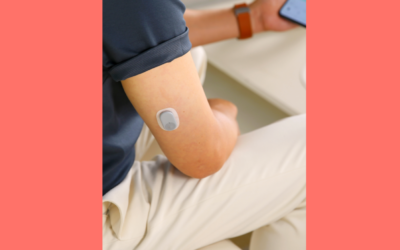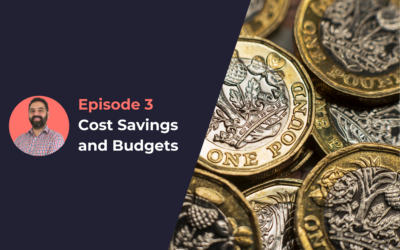By Steve Marriott on January 22, 2021
With diabetes accounting for 10% of the total NHS expenditure in England and Wales, and the number of patients diagnosed with diabetes rapidly increasing year-on-year, having access to diabetes education remains a priority for the NHS.
Nationally, 80% of the costs of diabetes are associated with the long-term complications of poor health and poor management, particularly glycaemic control and excess weight. The Diabetes Control & Complications Trial outlines the correlation between a lack of treatment of diabetes and other long-term health problems, including heart disease and stroke.
The financial burden of diabetes related expenditure can be reduced if patients are provided with a service to understand their condition and have greater insight around how to manage their diabetes. Claire Pridige, Education Service Manager, Spirit Health explains how education at an early stage can have a significant impact on health outcomes and NHS resources, and discusses how Spirit Health’s EMPOWER Structured Diabetes Education service has helped to achieve this.
Structured Diabetes Education as a priority
The National Institute for Health and Care Excellence (NICE) recommends that people with Type 2 diabetes should have access to structured diabetes education (SDE), with SDE able to deliver improved glycaemic control and help to prevent diabetes-related complications[1]. These courses can help to motivate patients with diabetes to improve their knowledge and skills, enabling them to better self manage their condition.
However, the extent and duration of the benefits may vary according to factors such as the support methods, providers and duration of the programme[2]. Worryingly, despite all newly diagnosed patients being offered a place on an SDE programme, uptake can be low. The Diabetes Audit (England 17/18 Short Report) demonstrated that only 8.7% of those newly diagnosed with diabetes were recorded as accessing SDE in England. Overall, it is believed that overall uptake is under 20% nationally, highlighting the poor national take up rate of SDE.
Spirit Health: EMPOWER
Spirit’s EMPOWER service is an award winning, QISMET accredited, structured diabetes education, referral management and education programme, designed to increase uptake of SDE amongst patients with Type 2 diabetes and gain better understanding and empowering them to take control of their condition.
EMPOWER was developed in 2014 and has evolved over time in response to educator, internal and external reviewer, patient feedback and access. Following the low results from The Diabetes Audit revealing the low uptake of SDE, the need for the initiative was clear.
Spirit delivers EMPOWER on behalf of CCGs across the UK, including the Leicester, Leicestershire and Rutland CCGs, as well as the cohort of the previous 12 south London CCGs, now NHS South East London CCG and NHS South West London CCG. EMPOWER’s full-time, dedicated educators and administrative staff have delivered over 800 SDE courses to 8000+ diabetes patients. The project is now self-sustained through commissioning for patients use.
Changing Diabetes Education
EMPOWER represents a step-change in the delivery of diabetes education services. A flexible approach to SDE allows patients access to diabetes education in a way that fits with their lives as a fully managed service, which is delivered locally and at convenient times across a variety of venues and locations for improved uptake.
It consists of a structured curriculum that encourages active and practical involvement of participants, along with the use of problem-solving models, aids identification, and planning of individualised strategies and interventions to facilitate diabetes self-management. The participants set themselves goals, and clinical and biometric data is captured at 6 and 12-to-14 months points.
The person-centred and discussion-oriented courses focus on what participants want to get out of the programme and builds upon attendees’ experiences. EMPOWER starts with patient goals for the course and focuses upon how to realise those. Our outcomes-based approach is proven to support improvements in clinical outcomes resulting in population health benefits and long-term cost savings. This has been found to be more engaging than more instructive courses, with patient scores for course quality, materials, educator and Friends and Family Test supporting this approach.
Additionally, EMPOWER has been externally validated against the NICE criteria for structured diabetes education and is also certified according to the QISMET Diabetes Self-Management Education quality standard, which has just been renewed this year.
Adapting to COVID-19
Following COVID-19, recognising that it was unable to deliver EMPOWER in its traditional face to face model, the team at Spirit Health were able to adopt an online model of EMPOWER using video calls within three weeks. Trained diabetes educators were able to convert rooms in their homes to provide the specialist education virtually, using video conferencing and chat facilities to help engage patients and encourage dialogue, which is an important part of the programme. Since April 20th 2020, EMPOWER has been live as a virtual service, and has run 47 courses online (by the end of July).
More recently, EMPOWER courses have been made available in a range of additional languages, including Gujarati, Hindi and Urdu, to suit the patient population and expand upon EMPOWER’s accessibility. By delivering EMPOWER in Indo-Aryan languages, nearly 70 people have been referred on to the programme to help educate diabetes patients who may not have English as their primary language.
Results
Uptake rates of 54% compared to the national average recorded uptake rate of under 20%, and 99% Friends and Family Test (FFT) score prove the success of the EMPOWER course.
38-year-old Sherry Want attended the online course in April and subsequently emailed the team:
“I just wanted to say a big thank you to the whole EMPOWER team. I’ve been really worried about my newly diagnosed Type 2 diabetes. But today’s course has given me some fantastic knowledge and I feel a little easier now on how to get started. Thank you, it’s a crazy time at the moment, but I wanted you to know you really have made a difference to my life and how I was feeling, lots of positive changes to start. Thanks again. You guys are amazing. Stay safe.”
From Spirit’s own EMPOWER SDE course, outcomes demonstrate a relative 11.7% reduction in HbA1c and a 2.2% relative weight loss. The programme achieves this by focusing on diet, exercise and lifestyle changes, setting personal goals and enabling people to take better control of their diabetes. This initiative provides a clear example of how centralising and pooling resources for services such as SDE is a model for success.
A study published in the British Journal of Healthcare Management, collected data, subsequently aggregated and anonymised, from 443 consenting participants with type 2 diabetes from the first four CCGs to adopt the EMPOWER T2n structure. The clinical and economic results of this study demonstrate that EMPOWER T2n is associated with improvements in participants’ clinical parameters at 6 and 14 months. Furthermore, based on modelling of these data, it provides significant cost savings over a 3-year time period.
Conclusion
By putting the patient in control of their condition and helping them to achieve a better understanding of Type 2 diabetes through SDE courses, they can build their confidence and self management of their condition to make positive lifestyle changes and live happier, healthier lives.
Increasing the provision and uptake of diabetes self management and education courses, such as EMPOWER, can reduce risk factors and minimise the chance of developing further health complications, in turn reducing NHS costs and resources. It’s important to make more people aware of the help and support that is available, both physically and virtually, particularly during these challenging times.
Ref: CLI3407SEPT20
[1] Wong CKH, Wong WCW, Wan EYF et al. Macrovascular and microvascular disease in obese patients with type 2 diabetes attending structured diabetes education program: a population-based propensity- matched cohort analysis of Patient Empowerment Programme (PEP). Endocrine. 2016;53(2):412–422. https://doi.org/10.1007/s12020-015-0843-z
[2] Chrvala CA, Sherr D, Lipman RD. Diabetes self-management education for adults with type 2 diabetes mellitus: a systematic review of the effect on glycemic control. Patient Educ Couns. 2016;99(6):926– 943. https://doi.org/10.1016/j.pec.2015.11.003


